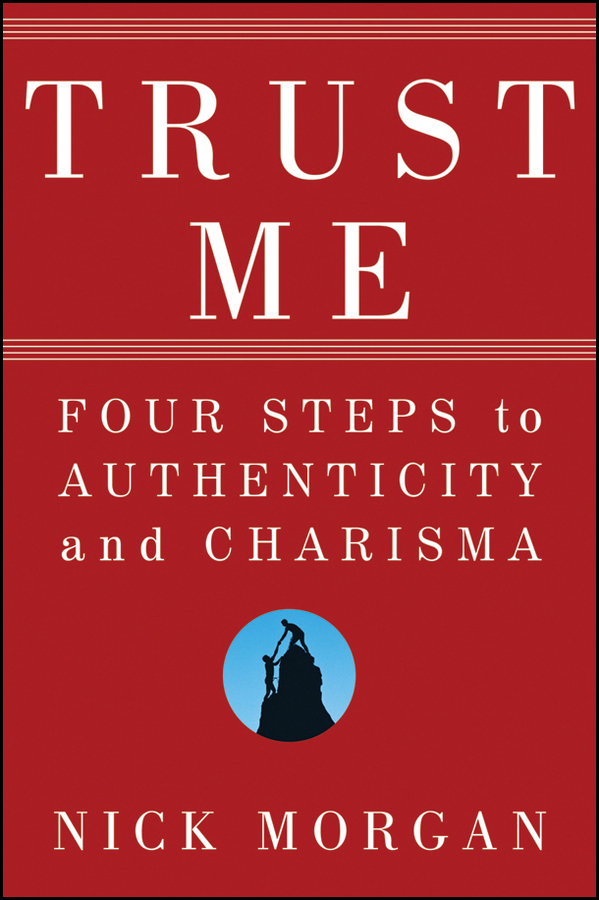Электронная книга: Nick Morgan «Trust Me. Four Steps to Authenticity and Charisma»

|
Nick Morgan shows how anyone can be an effective speaker by presenting an image of authenticity and respect for their audience, whether in a group presentation or a one-on-one conversation. He presents a four-step process, perfected in his teaching at Harvard, that enables the reader to use their own personal speaking style while becoming a more persuasive and charismatic communicator and leader. The basis of this process is the fact that when words and body language are in conflict, body language wins every time. This isn't easy to overcome, because normally body language is immediate, while the words lag slightly behind, and even a momentary conflict is perceptible to the audience. The key to success is to train your body language to unconsciously align with your message. The four steps: Form the attitude and intent to be open, and then let your body naturally express that intent. This feeling of openness will naturally affect the content of what you are saying, and it's that natural evolution that is at the heart of the process. Become connected to your audience. This creates a mutual energy, and you will naturally begin to think in terms of what the audience wants and needs in shaping your content. Ask yourself, what's my underlying emotion? Why does this matter to me? Becoming passionate about what you have to say naturally makes your audience care about it too. Really listen to the audience. Understanding their needs and reactions will enable you to direct your communication in mutually beneficial ways. Издательство: "John Wiley&Sons Limited (USD)"
ISBN: 9780470423219 электронная книга Купить за 1817.85 руб и скачать на Litres |
Другие книги схожей тематики:
| Автор | Книга | Описание | Год | Цена | Тип книги |
|---|
См. также в других словарях:
biblical literature — Introduction four bodies of written works: the Old Testament writings according to the Hebrew canon; intertestamental works, including the Old Testament Apocrypha; the New Testament writings; and the New Testament Apocrypha. The Old… … Universalium
china — /chuy neuh/, n. 1. a translucent ceramic material, biscuit fired at a high temperature, its glaze fired at a low temperature. 2. any porcelain ware. 3. plates, cups, saucers, etc., collectively. 4. figurines made of porcelain or ceramic material … Universalium
China — /chuy neuh/, n. 1. People s Republic of, a country in E Asia. 1,221,591,778; 3,691,502 sq. mi. (9,560,990 sq. km). Cap.: Beijing. 2. Republic of. Also called Nationalist China. a republic consisting mainly of the island of Taiwan off the SE coast … Universalium
literature — /lit euhr euh cheuhr, choor , li treuh /, n. 1. writings in which expression and form, in connection with ideas of permanent and universal interest, are characteristic or essential features, as poetry, novels, history, biography, and essays. 2.… … Universalium
Islamic arts — Visual, literary, and performing arts of the populations that adopted Islam from the 7th century. Islamic visual arts are decorative, colourful, and, in religious art, nonrepresentational; the characteristic Islamic decoration is the arabesque.… … Universalium
ḤASIDISM — ḤASIDISM, a popular religious movement giving rise to a pattern of communal life and leadership as well as a particular social outlook which emerged in Judaism and Jewry in the second half of the 18th century. Ecstasy, mass enthusiasm, close knit … Encyclopedia of Judaism
